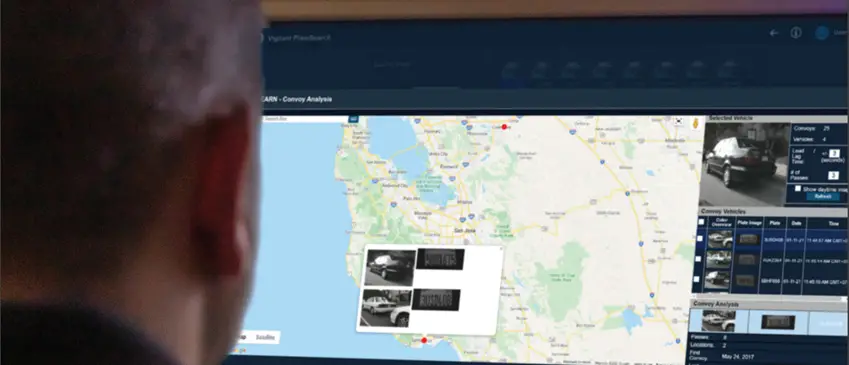
In December 2023, a vehicle equipped with cameras drove down a small residential street in Alabama, capturing several images of everything along the roadside. In one of the images, a Trump campaign sign was placed near a garage, flanked by an Israeli flag, a Christmas wreath, and an inflatable snowman. Another photo captured a “Steelworkers for Harris-Walz” sign displayed on a lawn. The cameras also recorded bumper stickers both supporting and opposing Biden, political slogans, and messages printed on t-shirts.
These images were taken by AI-powered cameras mounted on vehicles, originally designed to read license plates. However, the cameras also photographed political signs on private property, individuals wearing clothing with slogans, bumper stickers, and other details. According to WIRED, the DRN Data system, owned by Motorola Solutions, allows users to search for images using keywords, phrases, or names, even if they are not associated with license plates.
License Plate Recognition (LPR) cameras record everything happening around them, including location data. Private investigators, insurance companies, and repossession services have access to this information. Motorola Solutions’ Vigilant system also provides law enforcement agencies with access to these records.
Artist Julia Weist, who has researched such databases, discovered that the system can retrieve images based on various queries, such as “Trump,” “believe,” and even “lost.” A search for “believe” brought up lawn signs, writing on street planters, and even sweaters emblazoned with the word.
Experts argue that these technologies enable surveillance of individuals’ personal information, including their political beliefs. Jay Stanley of the American Civil Liberties Union notes that this trend highlights the widespread growth of covert surveillance in ordinary American neighborhoods.
DRN, in a statement, asserted that the company operates in accordance with the law. The LPR system functions by photographing a vehicle, and Optical Character Recognition (OCR) technology identifies and extracts the characters on the license plate. DRN sells various types of cameras:
- Fixed cameras for installation along roadsides, which can detect the make and model of vehicles;
- Cameras designed for mounting on buildings;
- Mobile cameras that can be attached to vehicles to capture images while in motion.
Over the years, DRN has amassed more than 15 billion photos of vehicles across the U.S., with the database growing by 250 million images every month. The data is made available to law enforcement, although information collected by police is not fed back into the commercial database.
Systems like DRN and its competitor, Flock, are increasingly being used to track people in cities and suburbs. However, experts warn that such data could be used for political purposes, especially in light of the growing societal tensions and aggression.


